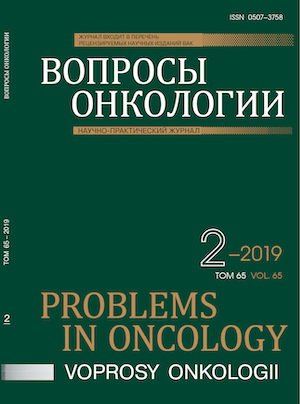摘要
Показатель смертности населения является одним из важнейших критериев оценки здоровья населения. Тем не менее, важным является правильное использование аналитических показателей, особенно при оценке динамических рядов. Величина «грубого» показателя смертности тесно связана с удельным весом лиц пожилых и старческих возрастов. Все международные издания (ВОЗ, МАИР, территориальные раковые регистры) осуществляют оценку динамики заболеваемости и смертности только по стандартизованным показателям, которые устраняют различие возрастного состава сравниваемых групп населения. В России с 1960 по 2017 годы удельный вес лиц пенсионного возраста возрос более, чем в 2 раза. Резко изменилась структура смертности от злокачественных новообразований (ЗНО). В работе представлена динамика грубых и стандартизованных показателей смертности от ЗНО в России и по всем административным территориям. Показаны реальные успехи деятельности онкологической службы. Исчислен среднесрочный интервальный прогноз до 2025 года.
参考
Стентон Г. Медико-биологическая статистика. - Москва. Практика, 1999. - 459 с.
Adam M., Kuehni C., Spoerri A. et al. Socioeconomic status and childhood leukemia incidence in switzerland // Frontiers in oncology. - 2015. - Vol. 5. - P 139.
Ahn Yo., Koo H., Park B. et al. Incidence estimation of leukemia among Koreans // Journal if Korean Medical science. - 1991. - Vol. 6. - № 4. - P 294-307.
Lauis J. De Gennaro. Acute lymphoblastic leukemia. - AMGEN, 2014. - P 52.
Nally R.J., Cartwright R.A. et al. The incidence and distribution of leukemia and lymphoma within Northern Ireland in the period 1989-1993 // the Ulster medical journal. - Vol. 65. - № 1. - P 19-31.
Mejia-Arangure J.M., Bonilla M., Lorenzana R. et al. Incidence of leukemias in children from el salvador and Mexico city between 1996 and 2000: population based data // BMC Cancer. - 2005. - Vol. 5. - P. 33.
Ram R., Wolach o., Vidal L. et. al. Adolescents and young adults with acute lymphoblastic leukemia have a better outcome when treated with pediatric-inspired regimens: systematic review and meta-analysis // Am. J. Hematol. - 2012. - Vol. 87(5). - P 472-478.
Rosenberg P.S., Wilson K.L. and Anderson W.F. Are incidence rates of adult leukemia in the United states significantly associated with birth cohort? // Cancer Epidemiol Biomarkers Prev. - 2012. - Vol. 21(12). - P 2159 - 2166.
Salvan A., Ranucci A., Lagorio S. et.al. Childhood leukemia and 50 hz magnetic fields: findings from the italian setil case-control study // int. j. environ. res. public health. - 2015. - vol. 12. - p. 2184 - 2204.
Slater M., Linabery A., Blair C. et.al. Maternal prenatal cigarette, alcohol and illicit drug use and risk of infant leukaemia: a report from the children's oncology group // Pediatr Perinatal Epidemiol. - 2011. - Vol. 25 (6). - P 559 - 565.
Tasian s.K., Loh M.L. and Hunger s.P Childhood acute lymphoblastic leukemia: integrating Genomics into Therapy // Cancer. - 2015. - Vol. 121 (20). - P 3527 - 3590.
Thomopoulos T.P, Skalkidou A., Dessypris N. et. al. Prelabor cesarean delivery and early-onset acute childhood leukemia risk // Eur. J. Cancer Prev. - 2015. - 10.1097/CEJ. 0000000000000151. DOI: 10.1097/CEJ.0000000000000151
Toft N., Schmiegelow K., Klausen T.W., Birgens H. Adult acute lymphoblastic leukaemiea in Denmark. A national population-based retrospective study on acute lymphoblastic leukaemia in Denmark 1998-2008 // Br. J. Haematl. - 2012. - Vol. 157(1). - P 97-104.
Wei W., Chen X., Zou Y et.al. Prediction of outcomes by early treatment responses in childhood T-cell acute lymphoblastic leukaemia: a retrospective study in China // BMC Pediatrics. - 2015. - Vol. 15. - P 80.
Yasmeen N., Ashraf S. Childhood acute lymphoblastic leukemia: epidemiology and clinic pathological features // J. Pak. Med. Assoc. - 2009. - Vol. 59. - № 3. - P 150-153.

This work is licensed under a Creative Commons Attribution-NonCommercial-NoDerivatives 4.0 International License.
© АННМО «Вопросы онкологии», Copyright (c) 2019
